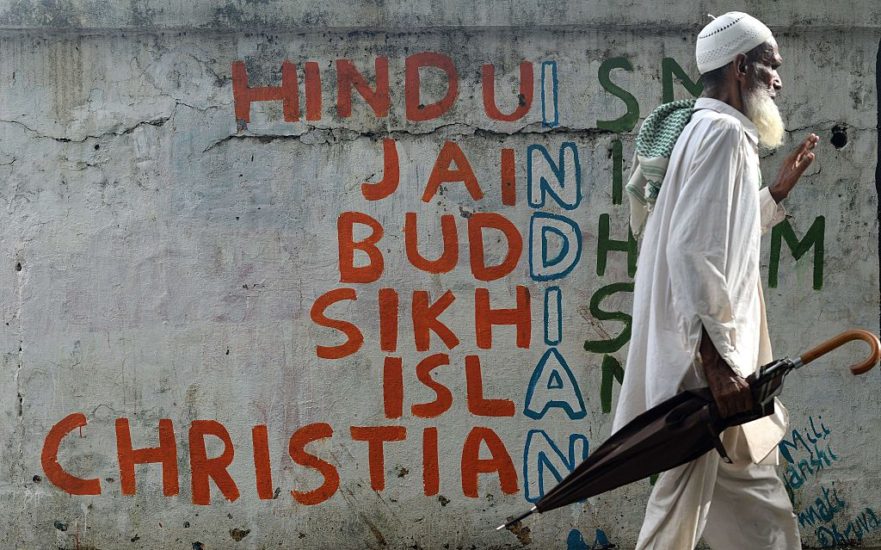Recently, 40 Christians in Uttar Pradesh, India’s largest province, met in the home of a church leader to pray. Two-dozen Hindu militants stormed in and verbally and physically abused those gathered. Six of the worshipers needed urgent medical attention, and it is reported that the militants threatened to return and kill the Christians if they continued to gather for prayer. Christian Solidarity Worldwide Chief Executive, Mervyn Thomas said, “We are increasingly concerned about the atmosphere of intolerance and hate toward religious minorities, which is unfolding in Uttar Pradesh and across India.”
One in six people on the planet today live in India. The world’s second-most populist country, with more than 1.3 billion people, is a religiously pluralistic and multi-ethnic democracy — the largest in the world. Its constitution provides for freedom of conscience and the right to profess, practice, and propagate religion. India is the birthplace of Hinduism, Buddhism, Sikhism, and Jainism. The latest census conducted in 2011 reported that approximately 80% of the population is Hindu, 14.2% are Muslim, 2% are Christian, and another 2% are Sikh. Buddhists, Jains, Bahá’ís, Jews, and observers of other small tribal religions collectively comprise less than 2% of India’s religious communities.
Yet despite the diversity of religions represented, religious freedom in India has deteriorated swiftly in recent years. Some observers point to the rise of the pro-Hindu Bharatiya Janata Party in 2014 as a cause for compromised religious freedom because many Hindus interpret the political shift as a mandate to advance movement toward a Hindu-only nation. Although much of the religious discrimination is against Muslims, violence against Christians has greatly increased. When Narendra Modi and BJP came to power in 2014, Open Doors USA ranked India #28 on their World Watch List for violence against Christians. Today, India is ranked #10.
A recent report by the U.S. Congressional Research Service describes serious ongoing concerns about religious freedom in India. The report cites a dramatic increase in attacks on religious minorities, with anti-conversion laws predominately used to discriminate against Christians. Hindus hold cows to be sacred, and the anti-cow slaughter laws are often used to discriminate against Muslims and Dalits, many of whom make their livelihood in the country’s beef and leather industries.
The latest report issued by the U.S. Commission on International Religious Freedom (USCIRF) classifies India as a Tier 2 country because of persistent conditions unfriendly to religious freedom. USCIRF has recommended the U.S. government press India to repeal or amend anti-conversion and anti-cow slaughter laws to conform to international human rights standards. At a recent hearing, USCIRF Chair Tenzin Dorjee noted, “In recent years, religious extremists in India have intimidated, harassed, and sometimes murdered members of religious minorities or those who either abandon or change faiths. These actions represent a direct threat to the secular claims of the Indian constitution and the fundamental rights of millions of Indians to practice their religion freely or live according to their beliefs without fearing violence.”
Religious freedom has been deteriorating in India for several years
Amidst the threats to this basic human right, India’s citizens are speaking out. In recent years, thousands of people, including church groups, have gathered across India to protest mounting religious intolerance and express solidarity with the victims of religious persecution.
Laws are being challenged. Lawyer groups in India are working to eliminate the country’s Freedom of Religion Acts or “anti-conversion” laws. State-level statutes have been enacted to regulate religious conversions in eight out of 29 states. In Himachai Pradesh, for example, lawyers challenged the anti-conversion law and won the case; the Himachai high court held that religious conversion is a matter of faith and personal thought of an individual and state government cannot encroach upon the privacy of any citizen. Lawyers are presently challenging the state laws in Uttarakhand and Jharkhand.
The Parliamentary election in India is less than one month away in what some are calling India’s most important election in decades.
Take Action
- Pray for upcoming elections in India and for elected leaders to publicly condemn intolerance and hold to account those involved in perpetrating or inciting religious violence
- Learn more about the work of Alliance Defending Freedom in India
- Read the We’re Indians Too report published by Open Doors
Graffiti on a Mumbai wall (Indranil Mukherjee/AFP/Getty Images)

